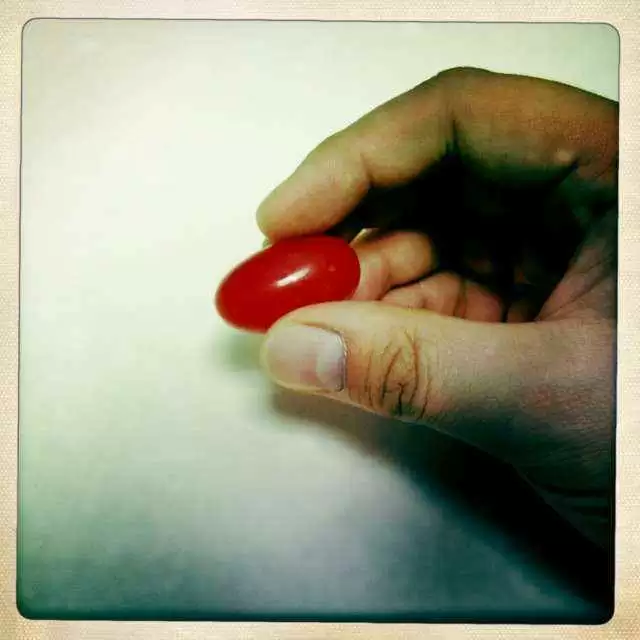
Celiac.com 09/20/2016 - A surprising research report from Australia that explores non celiac gluten sensitivity (1) has given rise to a number of journalistic offerings that range between offensive and downright silly, while the reporters who wrote them appear to have somewhat compromised reading skills (3, 4). That is not to say that the research report is without problems. However, at least that report requires a close reading to identify its most troubling elements (1). Specifically, it suggests that patients who claim to feel better on a gluten free diet are either deluded or confused. The research implies that these patients may actually feel better because they have reduced their consumption of the starch in the gluten grains they are avoiding. That doesn't qualify as justification for either "fake" or "b$#@@#$$" (2, 3) as stated in the titles of the above journalistic offerings. The central thrust of the research report is that their investigations showed no evidence of benefits for patients who follow a gluten free diet due to the patients' belief that they are sensitive to gluten. These researchers could have said something indicating that a low FODMAPs diet might work better to help the person with NCGS [non celiac gluten sensitivity], as it not only eliminates gluten, but it also eliminates the associated starches, and a host of other sugars and starches that may also be contributing to their digestive symptoms. But they didn't. They said, instead, that they found ".....no evidence of specific or dose-dependent effects of gluten in patients with NCGS placed on a low FODMAPs diet" (1).
First, let's be clear about what the acronym FODMAP means. It stands for fermentable, oligosaccharides, disaccharides, monosaccharides, and polyols. They are groups of sugars and starches that can induce or exacerbate gastrointestinal symptoms. But most of the gluten grains are made up of such starches (which are quickly turned to sugar as soon as we ingest them). The protein content is relatively small. Flours made from all forms of wheat and rye are high in FODMAPs (4). These people were not masquerading as having celiac disease. Neither were they trying to mislead anyone. They simply found that they feel better when avoiding gluten grains. So why the profanity and accusations embedded in the headlines of these articles (2, 3)?
Celiac.com Sponsor (A12):
Avoidance of these foods will often help those with digestive problems. But this can happen for a variety of reasons. For instance, in a person with lactose intolerance, that individual has stopped or reduced production of the brush border enzymes (lactase) that are needed to break apart the two constituent sugars that form lactose (galactose and glucose) the sugar found in milk. The lactose molecule, a disaccharide (di = two and saccharide = sugar) is too large to be absorbed through the cells (enterocytes) that line the intestinal wall, and then into the bloodstream. While humans may not be able to digest these larger molecules of lactose, many of the bacteria that live in our intestines do so with little problem. These microscopic residents of our GI tracts multiply rapidly in the presence of so much available food. The enormous and growing numbers of these microbes, combined with their rapid digestion of lactose, produces considerable quantities of methane gas. The resulting symptoms we experience include gut pain, flatulence, smelly stools, and diarrhea. The low FODMAP diet excludes or limits oligosaccharides (from 3 to 6 units of simple sugars) disaccharides, and monosaccharides. It also excludes sugar alcohols and fermentable foods which can produce acids, gases and/or alcohols.
Thus, only the gluten family of proteins should have been used to "challenge" the research subjects in this study (1) that is causing all the fuss. But that wasn't done.
As may be very quickly ascertained from the interview with Sachin Rustgi, in the spring issue of this journal, there are many structural variations in each of the families of glutens and in specific gluten structures of each strain of each of the gluten-containing grains (5). In fact, Biesiekierski et al openly acknowledge that they purchased the refined gluten they used in their study from a different supplier than was used in a previous study, conducted by some of the same researchers, that confirmed the presence of non celiac gluten sensitivity (6). The later study used a form of gluten that may not have diverged much from the original, as the research group was able to state that the glutens from both studies were similar. However, they also acknowledged that they did not characterize the other, non-gluten components of the gluten they used, either. Thus, there are two possible confounding factors just in the gluten component used in this study. Small differences in the gluten protein structures may have been sufficient to cause the dramatically different result, or some added or missing non-gluten component of the gluten purchased may have caused the different result. We have no way of telling if, or to what extent, either of these factors may have played in the different findings. Without more careful work, neither could the Biesiekierski et al research group (1).
It is not news to many of us who are gluten sensitive that differing families of gluten can produce differing symptoms and will sometimes elicit no symptoms at all. Some of us, including those with celiac disease, also react to corn and/or rice glutens, despite very clear medical statements that this is not part of our gluten-induced disease. So some of us have a more generalized reaction to gluten, while others are reacting only to sub-groups of gluten. Still others may cross react with similar proteins from other foods. Yet I can't help but believe that when such foods cause virtually identical digestive symptoms, there is some kind of connection to our problem with digesting and metabolizing gluten. Narrow medical definitions notwithstanding, each individual who struggles with this digestive issue must find her or his best answers through trial and error. Rigid journalists who genuflect at the altar of allopathic medicine will be unable to help us navigate this hazardous swamp. Neither will researchers with pre-conceived notions, who try to conduct dietary studies in a manner developed for pharmaceutical trials.
For instance, Sachin Rustgi acknowledged that some biopsy-diagnosed celiacs will not react to a given strain of gluten grains while others with celiac disease will mount an immune reaction against the same strain (5). So each of us may be sensitized to different short strings of amino acids that form part of one or more of the family of gluten proteins or one or more of its sub-groups. This is wholly congruent with the science that explains and depicts selective antibody formation and activation.
And that is only one part of the complexity here. Research that tries to formulate a strain of wheat that will not trigger gluten-induced illnesses must eliminate all sensitizing agents that each person with celiac disease may respond to with selective antibody production, while trying to retain the characteristics that produce the desired taste, smell, and nutrient content. Also, few of us with gluten issues need to be told that other foods can cause us to experience similar symptoms, or exacerbate, or vary, our symptoms. It can sometimes be a very confusing quagmire where it is difficult to identify the source of our symptoms.
Further, Biesiekierski and colleagues overtly acknowledge that their focus on fatigue might have produced better insight into NCGS by revealing "why those who follow a GFD feel better" if they had asked their question differently (1). They also acknowledge the possibilities that gluten may only cause symptoms in combination with FODMAPs, or that FODMAPs cause gut problems which result in a gluten-induced loss of a sense of wellness. Their comments in this regard commendably reflect a willingness to look beyond the surface in this matter. I would go further, based on Scott Adams' interview of Sachin Rustgi (5) and assert that not all genetic strains of wheat gluten will elicit symptoms of celiac disease in a given individual with biopsy-proven celiac disease, never mind those with NCGS. So the researchers' failure to account for patient-to-patient variability, as is seen in celiac disease, along with specific wording of questions about symptoms are yet two more confounding factors in this study. Perhaps a mixture of several forms of gluten, bereft of contaminants, would have been a better choice for Biesiekierski's group. And other precautions in formulating their questions might have been useful. But there are many more problems with this report.
Extensive Review by Expert Panel
Dr. Carlo Catassi and a large group of widely recognized celiac experts published a comprehensive review of the medical literature on the topic of non-celiac gluten sensitivity in September of last year. Therein, they state that: " Lack of biomarkers is still a major limitation of clinical studies, making it difficult to differentiate NCGS from other gluten related disorders" (7). Conversely, the Australian group led by Biesiekierski, asserts in their report which was published the previous month, that "Generally, NCGS is viewed as a defined illness, much like celiac disease, where gluten is the cause and trigger for symptoms" (6). At least one of these groups is confused about whether or not non celiac gluten sensitivity is well defined and well understood.
As a student of this literature myself, I would assert that the consensus view is that this form of gluten sensitivity is far from being either well defined or well understood. In fact, there is still a great deal that is not understood even about celiac disease. Non celiac gluten sensitivity has only recently begun to be widely recognized in circles of gastrointestinal researchers. Further, the Biesiekierski group's extensive use of celiac-related antibody tests appears to ignore the widely held view that biomarkers are one of the great impediments to understanding non celiac gluten sensitivity. I would also add that while I have often argued for the use of IgG class anti-gliadin antibodies as a marker of many cases gluten sensitivity (also see Jean Duane's article in this issue) with or without symptoms, I have also maintained that there are many cases in which these antibodies are not found, yet the patient will frequently benefit from removal of gluten from her/his diet.
A further weakness of the Biesiekierski et al study is that each of the intervals during which the low FODMAP diet (2 weeks), the gluten-containing diet at 16 grams/day (for 1 week), the low gluten diet at 2 grams /day (for 1 week), and the whey-containing diet 16 grams/day ( for 1 week) all ran for periods of time that were just too short to produce measurable serological findings in people with celiac disease. Even the washout period of 2 weeks was a minimal duration. Also, the three days allotted for the re-challenge trial was certainly too brief to produce meaningful results. Some celiac disease researchers report that only about 50% of their research subjects, all of whom had biopsy diagnosed celiac disease, produced celiac-associated antibodies after a two week challenge: "Antibody titres increased slightly from baseline to day 14 of GC [gluten challenge] but markedly by day 28" (8). This puts the one week duration of the Biesiekierski study into perspective - it is a choice that may have been directed at a specific research result. By day 28 of the Leffler et al study, 75% of the celiac patients showed markedly increased celiac associated antibodies. Thus, a single week of gluten challenge, as was used in the Biesiekierski et al study would be unlikely to produce any measureable changes in serum antibodies, even among people with celiac disease, who should reasonably be expected to react most quickly and strongly to gluten ingestion. Those with biopsy diagnosed celiac disease form the group that is currently thought to mount a much more serious and vigorous immune reaction to gluten than that seen in those with non celiac gluten sensitivity. While I do not necessarily agree with that perspective, it is wholly unreasonable to expect a reaction from a group of NCGS patients in one quarter of the time it is seen in only 75% of celiac patients.
This Leffler et al study (8) also indicates that these celiac patients were reporting symptoms within three days of beginning the gluten challenge. Thus, it seems especially surprising that self-diagnosed gluten sensitivity would be such a contentious issue that would incite such rancorous responses as those mentioned earlier (2, 3). Because NCGS is not well characterized or understood, allowing only one week for gluten ingestion to cause symptoms, if that is our only measurement of gluten's impact on their health, might work with about three quarters of celiac patients, if antibodies are measured after 28 days, but how can anyone say that it is appropriate for NCGS? Further, the use of tests, especially serological antibodies, takes the focus off of symptoms and undermines the patients' reports of symptoms, suggesting that their claims of gluten sensitivity are either misguided or duplicitous. Meanwhile, the ~25% of those with biopsy diagnosed celiac disease had not yet produced celiac associated serum antibodies, even after four weeks of gluten challenge.
We do not need physicians to tell us how we feel.
While most of the limitations to the Biesiekierski et al study were actually mentioned in their report, those journalists who formulated articles and inflammatory titles that included the terms "fake" (2) and "b$#@@#$$" (3) seem to have missed reading those parts of this report. Further, they took such statements as "These data suggest that NCGS, as currently defined, might not be a discrete entity or that this entity might be confounded by FODMAP restriction" to mean that there is no such thing as NCGS. However, those of us with reading skills above the middle-school level will recognize that Biesiekierski and colleagues qualified their statement in several important ways, suggesting that FODMAP restriction could be a confounding variable or that the current definition of NCGS may need to be adjusted, or the possibility that the gluten they used may not have been appropriate. One must wonder whether these journalists are that challenged when it comes to reading? Or are they trying to raise readership? Perhaps their ads sell according to how many hits and responses their websites garner. Thus, it may make sense to offend groups that are likely to post responses to their site, as a strategy aimed at raising their advertising revenue. I can't see what other limitation or motivation there might be to so dramatize these research findings with little regard for what the researchers actually said. On another level, I hope that the field of Journalism has not become so crass that they don't bother to exercise even a modicum of critical thought when reading reports of research results. That, after all, is their function in democratic societies. They are supposed to offer insightful commentaries on current trends in politics, science, education, law enforcement, and various other facets of our democratic cultures. It is difficult to find thoughtfulness or insight in the terms "fake" and "b$#@@#$$". It is also difficult to see such reports being published when a retrospective study I was involved in remains unpublished. Perhaps that is due to the finding that the gluten free diet had a very positive impact on the behavior and scholastic performance of many children.
The gluten sensitive community has come a long way, but many biased journalists, physicians, and researchers continue to resist the notion that gluten is a food that harms many people.
Sources:
- Biesiekierski JR, Peters SL, Newnham ED, Rosella O, Muir JG, Gibson PR. No effects of gluten in patients with self-reported non-celiac gluten sensitivity after dietary reduction of fermentable, poorly absorbed, short-chain carbohydrates. Gastroenterology. 2013 Aug;145(2):320-8.e1-3.
- Open Original Shared Link
- Open Original Shared Link
- Open Original Shared Link
- Adams S. Discussion with Assistant Resident Research Professor Sachin Rustgi on the Genetic Modification of Wheat to Make it Safe for Celiacs. Jrnl Glut Sens. 2014. Spring; 13 (2): 11-13.
- Biesiekierski JR, Newnham ED, Irving PM, Barrett JS, Haines M, Doecke JD,Shepherd SJ, Muir JG, Gibson PR. Gluten causes gastrointestinal symptoms in subjects without celiac disease: a double-blind randomized placebo-controlled trial. Am J Gastroenterol. 2011 Mar;106(3):508-514.
- Catassi C, Bai JC, Bonaz B, Bouma G, Calabrò A, Carroccio A, Castillejo G, Ciacci C, Cristofori F, Dolinsek J, Francavilla R, Elli L, Green P, Holtmeier W, Koehler P, Koletzko S, Meinhold C, Sanders D, Schumann M, Schuppan D, Ullrich R, Vécsei A, Volta U, Zevallos V, Sapone A, Fasano A. Non-Celiac Gluten sensitivity: the new frontier of gluten related disorders. Nutrients. 2013 Sep 26;5(10):3839-53.
- Leffler D, et al. (2013) Kinetics of the histological, serological and symptomatic responses to gluten challenge in adults with coeliac disease. Gut 62(7):996–1004.


.webp.1b984830e9b06d87f14257887c70ade1.webp)












.thumb.png.be5f28e9e38689292413f744e480f2a4.png)
Recommended Comments